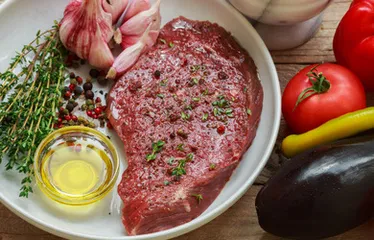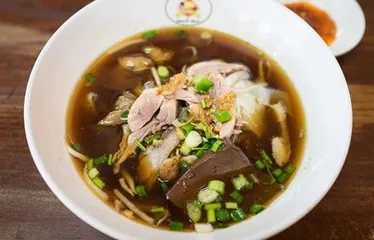Stewed tofu with ginger sauce has low calorie and high nutrition
Recommendation for this issue: Low-calorie Food Exchange Area with Ginger Sauce Stewed Tofu

South tofu 50 g; about 28 calories
Excipients:

ginger 8 g;16 calories
Seasonings:

sugar 2 tablespoons

sesame oil a little
Total calories: 80 calories/person-more calories check check the calories your body needs
Stewed tofu with ginger sauce-the principle of slimming
Principle of slimming: In cold winter, ginger can warm the stomach, ginger can relieve the cold, and ginger can also lose weight. Eating 10 grams of ginger a day can increase calorie consumption, warm the body throughout the day, stimulate blood circulation, and keep metabolism active.
Tofu has low calories. The calories per 100 grams of northern tofu are 98 calories, and the calories of southern tofu are only 57 calories. The fat content is 4.8%. The fat contains a large amount of essential fatty acids, phosphate and plant sterols, which is conducive to the reduction of serum cholesterol and the reduction of arteriosclerosis. Therefore, tofu is a food with low fever and high nutritional value.
Stewed tofu with ginger sauce-making steps

1 Prepare ginger sauce
Put miso, shredded ginger, granulated sugar and cooking wine into a bowl, stir well with a spoon to make ginger paste. Ginger sauce can be stored for up to a month in the refrigerator.

2 Cut tofu
Cut the tofu into small pieces.

3 Blanch tofu, heat, and pour with ginger sauce
After blanching it with water, pick up the tofu and place it on a plate. Heat it in the microwave for 1 minute, and drizzle it evenly with ginger sauce.

4 completes
Finally, add some chopped green onion and sesame oil, which is full of color, aroma and flavor.
Share it on my Weibo
nutrition consultant
网站图片位

Nutrition consultant Sylvia Wang Master of Food and Human Nutrition at the University of Florida In the cold winter, consuming 10 grams of ginger a day can increase calorie consumption and keep the body warm all day.
Stewed tofu with ginger sauce, low calories and high nutrition.
Sylvia Wang: Stewed tofu with ginger sauce is a low-calorie and high-nutritional diet dish. Ginger can dilate blood vessels, accelerate blood circulation, enhance metabolism, and achieve weight loss. The protein content of tofu is as high as 12.2%, and it is an excellent quality complete protein. In addition, it is also rich in B vitamins.>> See more ways to lose weight